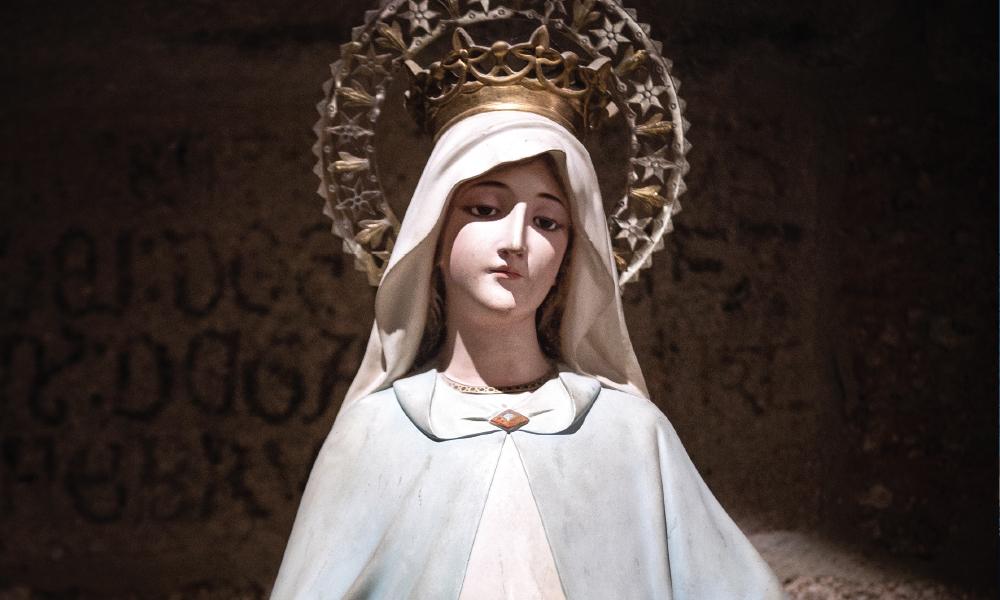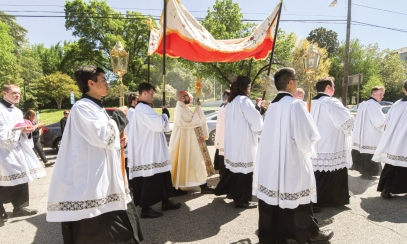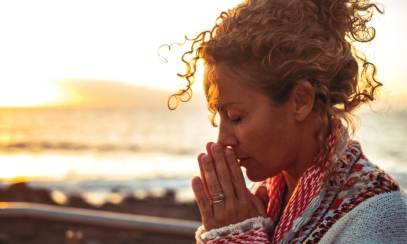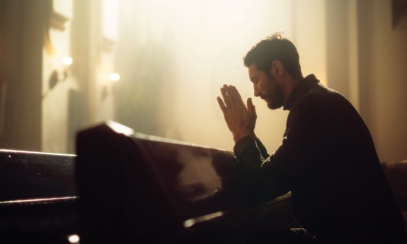
Real Presence Part 10: The Eucharist — Mary and the Heart of Devotion
In our devotional life as Catholics, May is identified as one of the months dedicated to Mary. This year, as we continue to journey through the process of Eucharistic Revival, it is an opportune and fitting time to discuss the connection between our Marian devotion and our eucharistic one. In many ways, these two are intimately, if not inseparably, related.
In our devotional life as Catholics, May is identified as one of the months dedicated to Mary. This year, as we continue to journey through the process of Eucharistic Revival, it is an opportune and fitting time to discuss the connection between our Marian devotion and our eucharistic one. In many ways, these two are intimately, if not inseparably, related.
There are several points to reflect on, but we are going to limit the focus. Specifically, we’ll highlight how these forms of devotion flow directly from the kerygma (which means “proclamation” in Greek), the basic proclamation of the Good News of the salvation offered to us in Christ Jesus.
The kerygma represents the essence of Christianity. It is the Good News we are all called to share. This proclamation reminds us that God has created us in love and, despite our sin, continues to love us. This love is so great that the Father sent the Son to take on our humanity and die for us; the Son reconciled us with himself in a superabundant way by offering us new life through the resurrection; and God the Holy Spirit continues to be present to us and dwell with us. Both eucharistic and Marian devotion always draw us deeper into our very identity as Christians because they point us to this Good News.
The Eucharist and our devotion to it are centered on the Real Presence of Christ. The same also can be said of our Marian devotion. Mary’s role in salvation history is to make Christ present. In the Incarnation, Christ takes his human nature, our human nature, from Mary. Consequently, we refer to her as the Mother of God because she is the real mother of Jesus’ humanity. Historically, it is Mary who links us to Christ; it is through her that Jesus enters human history in a profoundly intimate and special way.
This Real Presence of the Incarnation is at the root of the Real Presence of the Eucharist. The reason we speak of body, blood, soul and divinity when we discuss the gift of Christ himself in the Eucharist is that we encounter the whole Christ, who became Incarnate. The reason he makes himself present in the Eucharist is that he first made himself present in the Incarnation. The Eucharist, then, continues in a special and sacramental way the presence that Mary helped to first bring about. Mary herself is the original tabernacle, which is imitated in our architecture — tabernacles in the parishes — and in our Eucharistic spirituality — the tabernacle that is the Church as we receive his Real Presence. Whenever we receive Christ, we are imitating Mary, the first to receive him body, blood, soul and divinity.
We have made frequent reference to the sacrificial character of the Eucharist. Once again, Mary is our link to Christ’s sacrifice through the Incarnation. It is because he took his humanity from her that Jesus is able to offer himself on the cross. It is his humanity, Mary’s humanity, our humanity, that dies on the cross. Unlike other instances of death, because of the union with divinity in the person of Christ himself, this act of defeat is transformed into one of triumph. We use the language of Paschal Mystery to refer to this because Christ is the new Passover lamb that extends a new, fuller salvation to us. His once-for-all sacrifice, which is also Mary’s sacrifice and our own, is made accessible to us in a special, tangible way within the Eucharist.
The Eucharist making the kerygma tangibly available to us is also true of Mary and our devotions to her. Our Marian spirituality informs our eucharistic spirituality and vice versa. Both are rooted in our fundamentally kerygmatic, incarnational and Paschal spirituality. When we phrase it like that, it makes our faith sound very abstract and theoretical. What our devotion to the Blessed Mother and to the Eucharist highlight for us is exactly opposite: salvation is not an abstract idea. It is a tangible and lived reality that always involves presence and, consequently, transformation. Together, devotion to the Eucharist and to Mary bring us to the heart of our faith.
Michael Martocchio, Ph.D., is the secretary of evangelization and the director of the Office of Catechesis and Christian Initiation. Email him at mmartocchio@charlestondiocese.org.



